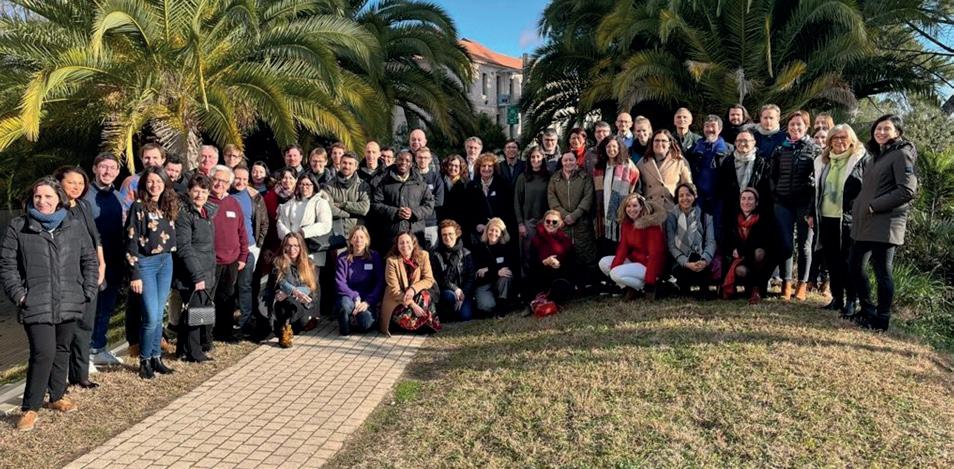
2 minute read
WEST & NORTH YORKSHIRE NEWS
Supporting our members
The recent good news that income tax receipts in January were higher than expected will have made the Chancellor’s ears prick up as he prepared for the recent Budget on 15 March. The £5.4bn surplus that resulted was the highest self-assessed income tax receipts since records began in 1999. While this column was written before Budget details were revealed, it is hoped that Jeremy Hunt found wriggle-room to be able to support hard-pressed business during these tough times.
Advertisement
However, government debt remains at its highest level since the 1960s, and (again, at the time of writing) there’s no sign of cabinet ministers calling for public sector pay increases to bring an end to the ongoing strikes.
The predicted recession will now not be as severe or as long as was earlier feared; but, nevertheless, it is still a tough climate for many. The continuing tight labour market is also causing problems for organisations trying to recruit suitable staff. As we now look to deliver the Government’s Local Skills Improvement Plans in our area, we are putting more time and resource into this, but change cannot come overnight.
We are therefore seeking views from businesses on their issues and you can help us by completing a survey on our websitewnychamber.co.uk/local-skills-improvement-plan
It’s not a magic bullet, and we have said that, where things are working well on skills delivery, we will not change them; but something has to be done, and this will be a step in the right direction.
Amanda Beresford Chair of the Board West & North Yorkshire Chamber
Future of circular agriculture
International project AgriLoop is launched to accelerate the future of circular agriculture by converting residues into high-value, eco-friendly products
Thirty-five academic and private partners from across Europe and China are now working together on the AgriLoop project, which will develop sustainable processes to convert agri-food residues into high-value, eco-friendly products for use in food, feed and bio-based materials.

This new collaboration will find new uses for agri-food residues: currently an underexploited resource for both the European Union and China, accounting for around 50% of harvested crops. Over the next four years, this project will develop sustainable integrated processes in a cascading biorefinery approach to convert agri-food residues (from tomato, soy, straw, potato, brewery, oil, winery and livestock sectors etc) into high-value, eco-friendly products such as plant and microbial proteins, polyesters and other biobased chemicals for use in food, feed, health and material applications, especially by the agricultural sector. The increase in use will bring significant economic, environmental and societal benefits to the regions involved.
The BioVale team within the Biorenewables Development Centre are responsible for the communication and dissemination of the project, it is their role to increase awareness of the project to its key stakeholders. As the UK is no longer part of the EU they have been successful in securing a Horizon Europe funding guarantee from UK Research and Innovation (UKRI).
Professor Nathalie Gontard, Director of Research at the National Research Institute for Agriculture, Food and Environment and Coordinator of the project commented:
“Here we have a fantastic opportunity for the countries in the European Union and our associated partners in the project to collaborate and strengthen our partnership with China on such an important global issue.”
Professor Aimin Shi, Research Fellow from the Institute of Food Science and Technology, Chinese Academy of Agricultural Sciences added: “Here in China we are thrilled to be part of such an important and interesting international project which will have real impact across the world.”










